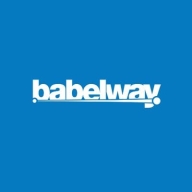

MuleSoft Anypoint Platform and Babelway compete in the integration platform space. Anypoint Platform stands out in scalability and connectivity options, while Babelway focuses on B2B integration and simplicity.
Features: Anypoint Platform offers comprehensive API management, robust security features, and a library of pre-built connectors. Babelway focuses on B2B integration solutions, simplifying electronic document exchanges and integrations.
Ease of Deployment and Customer Service: MuleSoft provides a deployment framework for cloud, on-premises, and hybrid implementations with strong technical service. Babelway offers swift deployment focused on B2B, with efficient support for small to medium enterprises.
Pricing and ROI: MuleSoft's setup costs reflect enterprise-grade offerings with higher upfront investment for long-term ROI. Babelway offers competitive pricing with faster ROI for straightforward integration scenarios.

Babelway offers a SaaS-based integration platform that automates business-to-business data and documents. Babelway has built a SaaS application for B2B Integration. It allows organizations to automate cross-company processes and enables the secure exchange of business documents.
MuleSoft Anypoint Platform is used for integration and API management, connecting enterprise applications across retail, e-commerce, and supply chain. It supports cloud-to-cloud and cloud-to-on-premises scenarios with real-time and asynchronous messaging.
Users leverage MuleSoft Anypoint Platform for diverse integrations including cloud-based and on-premises, enabling data transformations, middleware functions, and hybrid integrations. It seamlessly connects systems like SAP, Salesforce, and Oracle, facilitating data transfers and integrating legacy systems. The platform offers a graphic interface, quick implementation, and a variety of connectors, contributing to its popularity for robust and scalable solutions. Despite its strengths, users seek better technical support, more connectors, simplified runtime management, and improved documentation.
What are the key features of MuleSoft Anypoint Platform?Enterprises in retail, e-commerce, and supply chain implement MuleSoft Anypoint Platform to connect various applications and systems. It supports real-time messaging for inventory management, synchronizes customer data across platforms, and integrates with legacy systems for smooth data migration. Users benefit from quick deployments and a marketplace that accelerates integration projects.
We monitor all Integration Platform as a Service (iPaaS) reviews to prevent fraudulent reviews and keep review quality high. We do not post reviews by company employees or direct competitors. We validate each review for authenticity via cross-reference with LinkedIn, and personal follow-up with the reviewer when necessary.